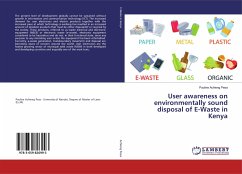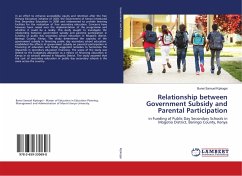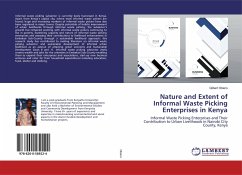
User-Centric Evaluation of Government of Kenya Online Services
The Case of iTax
Versandkostenfrei!
Versandfertig in 6-10 Tagen
27,99 €
inkl. MwSt.

PAYBACK Punkte
14 °P sammeln!
The Kenyan government has worked to use Information and communication technologies (ICTs) to increase openness and transparency in its operations. This is seen as a cost-effective and convenient means to improve service delivery and promote public participation. While many of these efforts have had a government-centered approach, the users' perspective has been largely ignored. This report details how users' perspectives and attitudes affect the adoption of e-government services. The iTax online service was selected as a case study. The research framework is based on technology acceptance mode...
The Kenyan government has worked to use Information and communication technologies (ICTs) to increase openness and transparency in its operations. This is seen as a cost-effective and convenient means to improve service delivery and promote public participation. While many of these efforts have had a government-centered approach, the users' perspective has been largely ignored. This report details how users' perspectives and attitudes affect the adoption of e-government services. The iTax online service was selected as a case study. The research framework is based on technology acceptance models focusing on the aspects of perceived usefulness and perceived ease of use by the users. This view is relevant for developing countries that are grappling with connectivity and inadequate infrastructure while developing e-governance initiatives. Findings indicate that the main pain point for the users is the speed of connectivity and the complexity of the said e-government service. To increase the adoption of e-government services governments need to focus on the needs of users, their perceived attitudes towards the services and respond to these needs effectively.












